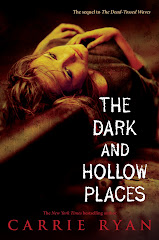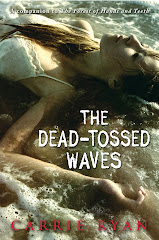Sunday, April 20, 2008
Beginnings
On many an occasion, my friend and CP, Diana, has joked about my need to have a first line in order to get started on a book. And on more than one occasion I have talked about how important it is as writers not to fall into the trap of our own myth -- to believe we need to write at a certain time, in a certain place, with a certain ambiance lest we never be able to write anywhere else and under any other situations. And so of course I wanted to prove Diana wrong and start on Book 2 (B2) without the requisite first line. At the same time proving myself right that we need to find flexibility as writers.
Oh, how I tried and tried!! I even started a draft, wrote many many words and sent it to JP who said "Well, I don't think that will end up as your first line, but that's a great start to the book!" And then a few weeks later that draft stalled for various reasons. And it was back to plotting (which I don't really do so I'm not sure why I was trying).
I think one of my issues is that the possibilities are so endless when you start a book. I've used the analogy of thousands of doors that stand open and ready at the beginning of the book and writing is a series of closing doors. To me, choosing that first line is like finding the spot in the labyrinth of open doors to start closing them.
Put it this way: before you put one word down on paper, your book is without limits or bounds. With every word, you narrow the focus and the world. And so here I was casting about for ideas in an infinite world!
I realized that for me, finding that first line is finding the jumping off point (yes, duh, but bear with me). Suddenly, the possibilities aren't endless -- they all have to lead from the last word written. At that moment it's not just "what happens" it's "what happens from here? What comes next." That narrows that infinite stream of possibilities dramatically. Having something on paper gives me focus, and if the first line is wrong, then that focus may be off.
When I was in high school I read a book on short story plotting. The author suggested that the beginning of a story is like standing on a line and looking into the distance, each line splitting into more and more branches (like the trunk of a family tree constantly splitting). Each branch is a moment of decision for the character: he can choose to do what he's always done, he can choose to change, or he can refuse to choose. At the beginning, every one of those branches should be a possibility to the reader (like standing at the base of a tree -- there are hundreds of possibilities to reach a leaf). But looking back from the end of the story (from the leaf), every choice should be clear -- there should be a defining path back to the starting point (the base of the trunk).
For some reason, that image has always stuck with me. And so I wonder that if that first line is wrong -- if the trunk of the tree is off, if the rest of the story fails.
Because I've become a big believer in revision, I'd like to say that no, the story won't fail because the first line is off. I know enough people who have changed their first lines to know this for sure.
But at the same time, a while back I was struggling with the infinity of possibilities and then I found my first line and now I can focus on the story. Now, instead of hopping from idea to idea to idea, I can take where I left off and think "what comes next." To me, this is much easier - that first line grounds me and grounds the story.
How do y'all start your stories? How do you find the beginning?
Oh, how I tried and tried!! I even started a draft, wrote many many words and sent it to JP who said "Well, I don't think that will end up as your first line, but that's a great start to the book!" And then a few weeks later that draft stalled for various reasons. And it was back to plotting (which I don't really do so I'm not sure why I was trying).
I think one of my issues is that the possibilities are so endless when you start a book. I've used the analogy of thousands of doors that stand open and ready at the beginning of the book and writing is a series of closing doors. To me, choosing that first line is like finding the spot in the labyrinth of open doors to start closing them.
Put it this way: before you put one word down on paper, your book is without limits or bounds. With every word, you narrow the focus and the world. And so here I was casting about for ideas in an infinite world!
I realized that for me, finding that first line is finding the jumping off point (yes, duh, but bear with me). Suddenly, the possibilities aren't endless -- they all have to lead from the last word written. At that moment it's not just "what happens" it's "what happens from here? What comes next." That narrows that infinite stream of possibilities dramatically. Having something on paper gives me focus, and if the first line is wrong, then that focus may be off.
When I was in high school I read a book on short story plotting. The author suggested that the beginning of a story is like standing on a line and looking into the distance, each line splitting into more and more branches (like the trunk of a family tree constantly splitting). Each branch is a moment of decision for the character: he can choose to do what he's always done, he can choose to change, or he can refuse to choose. At the beginning, every one of those branches should be a possibility to the reader (like standing at the base of a tree -- there are hundreds of possibilities to reach a leaf). But looking back from the end of the story (from the leaf), every choice should be clear -- there should be a defining path back to the starting point (the base of the trunk).
For some reason, that image has always stuck with me. And so I wonder that if that first line is wrong -- if the trunk of the tree is off, if the rest of the story fails.
Because I've become a big believer in revision, I'd like to say that no, the story won't fail because the first line is off. I know enough people who have changed their first lines to know this for sure.
But at the same time, a while back I was struggling with the infinity of possibilities and then I found my first line and now I can focus on the story. Now, instead of hopping from idea to idea to idea, I can take where I left off and think "what comes next." To me, this is much easier - that first line grounds me and grounds the story.
How do y'all start your stories? How do you find the beginning?
Subscribe to:
Post Comments (Atom)
















4 comments:
I like your branch analogy. I'm a huge believer in stories being about choices.
As for beginnings... I'm a plantser, which means I plot the general arc and TPs but I pants each individual scene and the distance between two points. So, I've already narrowed the scope considerably by the time I start a story. And usually, the story first occurs to me as a scene ("finds trunk", "wrong tooth", "murder") which also helps. Nonetheless, I too stare at my screen trying to think of a perfect first line. (Which ALWAYS changes, ironically enough.) And I think I hesitate for the reasons you say--that once I put it down, the rest of the story must go from there. So it better be the right direction, else we'll wind up in Kansas when we meant to go to California. (Probably not, but that's how it feels.)
Interesting topic, Carrie!!
For me, I don't write that elusive first line until I'm more than halfway into the book, sometimes it doesn't even come until I'm done. That's because it generally takes me 3 chapters before I actually start writing anything that has anything to do with the book I'd planned. Not sure why, but I call it my "warming up stage."
Anyway, it was so great ot finally meet you in person this past weekend!
I've just been skipping around looking at blogs today, and I ran across this post and was very intrigued. So, hi!
I love your tree analogy, and now that I think of it, the few short stories that I've written have indeed worked out like that. The novels I'm working on, on the other hand, don't seem to, unfortunately. Generally the first thing that comes to me is not the first line, or even the first scene necessarily, but the first semi-climactic scene, which usually is a scene about a big choice that has to be made. It'll come to me so clearly that I'll know pretty much everything I need to know about my characters then and there. I tend to write that down in a flourish, and then go back and figure out how these new characters got to that point, and how they go beyond!
i didn't worry about the first line or first para or first scene so much. i'm glad because in the end, my first scene was axed and i had a brand new one after several revisions.
the ending was more difficult to get exactly right for me--and it was more important to me as well, more so than the beginning.
Post a Comment